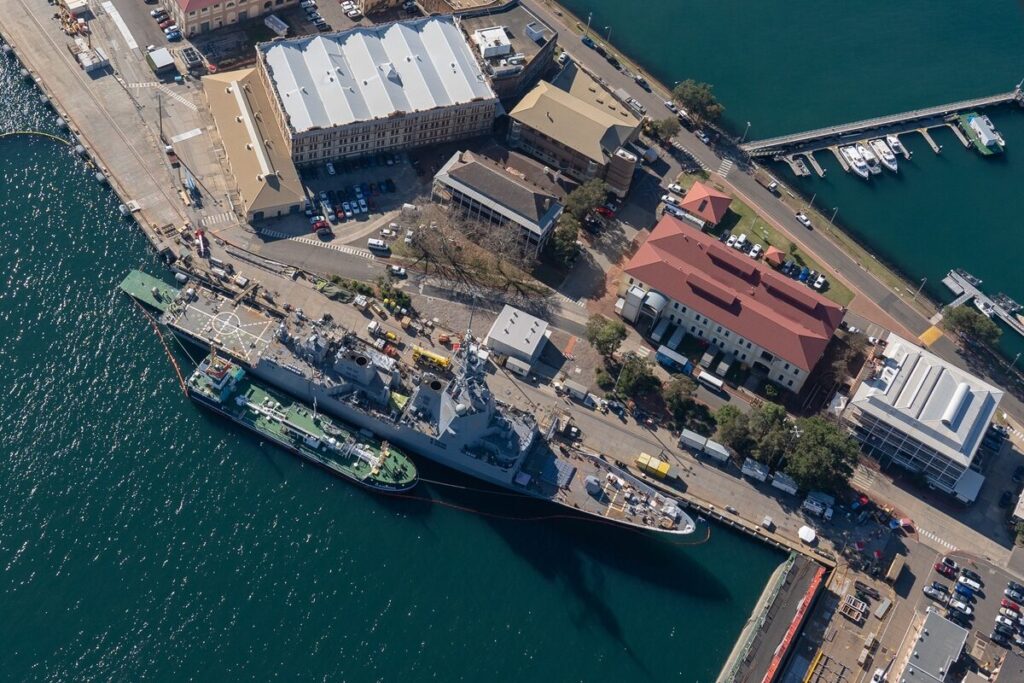In the context of an increasingly globalized and demanding maritime trade, the digitalization of port operations and bunkering processes has become a priority to enhance efficiency, traceability, and the sustainability of logistics activities. The adoption of digital technologies in these environments not only enables resource optimization and lower operating costs, but also strengthens safety, transparency, and regulatory compliance in international maritime transport.
Ports and logistics operators are actively investing in digital solutions that transform how port maneuvers are planned, controlled, and executed, as well as how marine fuels are supplied. These innovations are paving the way toward more agile, interconnected, and environmentally friendly logistics.
Automation and real-time traceability in port operations
The introduction of Internet of Things (IoT) tools, smart sensors, and integrated port management platforms has revolutionized operations at maritime terminals. Thanks to digitalization, ports can monitor in real time the movement of containers, vehicles, trailers, or bulk cargo, allowing them to anticipate bottlenecks and make data-driven decisions.
Moreover, Port Community Systems facilitate coordination among all stakeholders—shipping lines, logistics operators, port authorities, and road transport companies—enabling better synchronization of operations, reducing waiting times, and avoiding inefficiencies.
Digital traceability also enhances regulatory compliance by recording every stage of the movement of goods and facilitating audits or inspections by customs or environmental authorities.
Digitalization of bunkering: safety, efficiency, and sustainability
The bunkering process (fuel supply to vessels) has also benefited significantly from digital transformation. Today, many supply operations use certified digital measurement systems, flow sensors, online verification platforms, and blockchain tools to ensure that the volume and quality of the fuel supplied are exactly as agreed, eliminating discrepancies or fraud.
These solutions make it possible to automatically record every bunkering operation, from hose connection to the electronic signing of the delivery note, thereby reducing manual intervention and improving documentary traceability. In addition, when integrated with the ship’s or supplier’s management systems, it is possible to plan refueling operations more precisely and coordinate port maneuvers more efficiently.
In an environment where new fuels—such as LNG, methanol, or biofuels—require special safety and handling protocols, digitalization acts as an essential reinforcement to minimize risks and ensure the correct execution of each operation.
Emissions reduction and resource optimization through data
One of the major benefits of digitalization in ports and bunkering is the ability to measure and reduce the environmental footprint of operations. Advanced data analytics platforms make it possible to identify patterns in energy consumption, idle times, or inefficient routes, thus facilitating decision-making aimed at energy efficiency.
For example, many terminals already use algorithms to optimize container positioning, reduce the use of heavy machinery, or coordinate truck arrivals according to operational availability, which helps to reduce road traffic, emissions, and fuel consumption.
In the field of bunkering, sensor-generated data helps plan the optimal timing for supply, reduce losses due to evaporation or leaks, and ensure that alternative fuels are handled under optimal conditions.
Interoperability and standardization: keys to digital success
Despite technological advances, one of the major challenges of digitalization in port operations and bunkering is interoperability among systems. The various platforms must be able to communicate with one another—across ports, shipping lines, fuel suppliers, and authorities—so that information flows securely and consistently.
The standardization of protocols, data formats, and verification systems is essential to build a truly digital and scalable logistics ecosystem. International initiatives such as IMO e-navigation, the Digital Container Shipping Association (DCSA), and ISO standards for electronic bunkering measurement are helping lay the foundations for this interconnected future. SUARDIAZ Group, aligned with this digital transformation, promotes the adoption of smart solutions to improve the efficiency, traceability, and sustainability of its port and maritime supply operations, supporting its clients with cutting-edge technology and a forward-looking vision for logistics.























